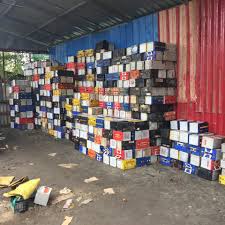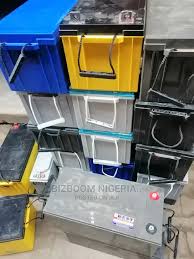![]()
If you’ve landed on this article page, you’re probably searching for a
good business idea—an idea that’s light on the pocket but heavy on
returns, promising both a fulfilling journey and potential profit.
|
How To Start Battery Recycling Business in Nigeria
A battery recycling business describes all activities involved
in repurposing the different parts of batteries – metals,
chemicals and plastics – that would have otherwise been disposed
as solid municipal waste. The process includes collection,
sorting and further processing batteries into new battery
products.
In the third quarter of 2020, the battery recycling market was
placed at $17.2 billion and has been estimated to grow to about
$23.2 billion by 2025 at a CAGR of 6.1%. The anticipated rapid
growth will expectedly be driven by the quest for a cleaner and
safer environment as well as the need to conserve resources for
production of batteries. At the moment, the United States,
China, South Korea, Japan, India and European countries account
for the largest volumes of battery recycled annually. These
countries are expected to remain at the forefront of the battery
recycling market with very slight alterations.
Battery Waste Collection: The most basic business opportunity
involved in any recycling business is the actual scouting and
collection of waste battery. Batteries have a short lifespan and
are soon dumped after a short use. The recycling process starts
with visiting electronics shops, repairshops, and other related
spots. In most towns, battery collection businesses engage the
services of young men to collect scrap batteries, sometimes in
exchange for tokens.
Battery Waste Sorting
And Processing: There are several battery types, ranging from
the common lead acid batteries to the lithium-ion batteries and
NiMH, among others. These battery types have different values on
the battery recycling market. Sorting them out, packaging and
further processing the batteries require a team of trained
personnel.
Distribution And Export
Services: Where battery recycling companies are unavailable,
battery collectors have to take their collected scrap batteries
to the international market. This is the point where export
firms come onto the scene. They network with foreign recycling
companies to get the best rates for collected scrap batteries.
Repair And Maintenance Services: Battery recycling involves the
use of certain equipment such as filter presses, evaporation
system, etc. which need regular checkup and maintenance services
for optimal performance.
Recycling batteries is a way of recovering and conserving
batteries. It keeps the environment free of harmful chemical
substances. Recycling batteries reduces land and sea pollution.
Batteries get quickly damaged when they are exposed to extreme
temperature. The battery on the first cell phone ever provided
only twenty minutes of talk time before it died. Batteries come
in various sizes but the most common ones are AAA, AA, C and D.
Get A Suitable Business Site: It helps to site your business in
the heart of industrial activities. For a battery recycling
company, you do not need much facilities, especially if you
focus on collection and selling to foreign-based recycle
factories.
Choose A Particular
Battery Type: Focus your business on a particular battery type.
Batteries are more valuable than one another. At the moment,
lead-acid batteries are the most valuable on the battery market.
For ease and greater profits, it is advisable to focus on one
type of battery.
Identify Your Target Market: This is the point where you
determine the scope of your business. Who are your intended
sources of batteries? The decision here largely depends on the
type of battery you intend to deal in. Your targets could
include automotive companies, electrical shops or mobile phone
repairers.
Get our Practical guide on how to set up a lucrative
Battery Recycling
business in Nigeria. The body of this work is formed from
consulting experienced and relevant people running the Battery
Recycling business, to get first-hand information about the
success secrets and marketing strategies deployed to achieve
business success
|







